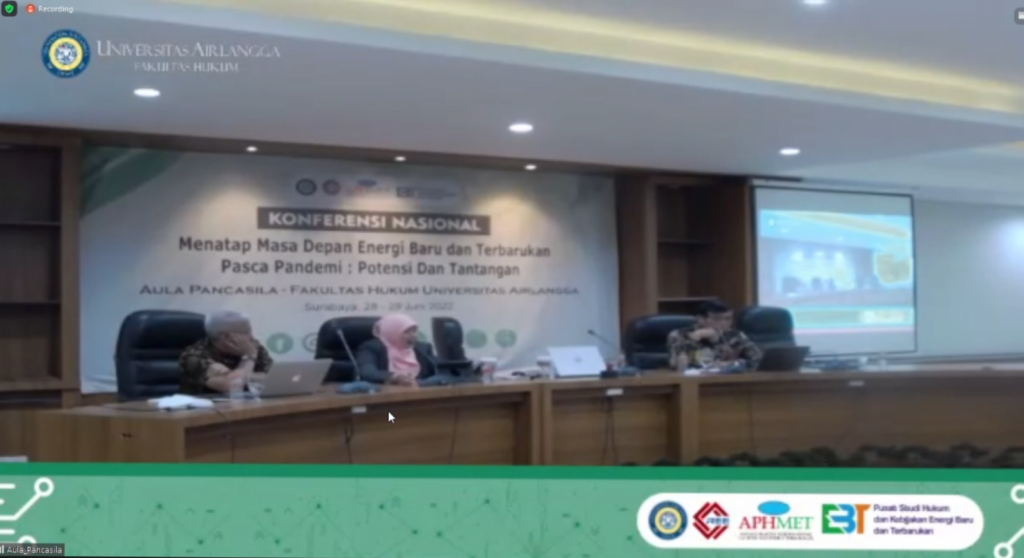UNAIR NEWS – Indonesia, which holds presidency of the G20 Summit, is currently focusing on developing the New and Renewable Energy (EBT) transition. The mega project development can potentially be a new source of corruption if it is not accompanied by strict law enforcement. It was conveyed by Dadang Trisasongko, Co-Chair of Anti-Corruption Working Group C20.
The alumnus of the Faculty of Law (FH) Universitas Airlangga (UNAIR) assessed that, with Indonesia still has a Corruption Perceptions Index (CPI) below 40, the implementation of the energy transition will increase corruption cases in Indonesia. It should be noted that CPI is an index to measure a country’s corruption level, where the smaller the CPI score of a country, the higher the level of corruption in that country. Meanwhile, Indonesia occupies the 96th position with CPI of 38.
Non-transparent power generation activities
According to Dadang, several things can be a factor in causing corruption cases in the implementation of the EBT transition. One of them is the non-transparent political activity of the Coal-fired Power Plant (PLTU). Research conducted by the Corporate Political Engagement Index (CPEI) states that coal-fired power plants in Indonesia are not transparent and closing access to reports of company activities, especially in the political sector. Dadang focused on political donations.
“Political donations are allowed with certain limitations, but our coal-fired power plant seems to cover it up. In fact, he explained that almost 44 percent of Indonesian PLTUs have Politically-Exposed Persons (PEP), meaning there are transactional activities,” he explained.
If the interaction between PLTU and the public sector continues, he continued, corruption cases in the energy sector will still exist. “Because that’s where the source of political corruption comes from, if corruption isn’t addressed, it will only move places,” he said.
Cross jurisdictional bribery scandal
In addition, Dadang also revealed that corruption schemes are not only carried out between state-owned enterprises (BUMN) and domestic officials but also with foreign entrepreneurs. He cited several cases such as bribery in the procurement of aircraft engines by Rolls Royce and bribery for using lead in fuel by INNOSPEC. Both of which are companies from the UK which have strict laws on corruption.
“This is what we have to prevent when implementing the EBT transition, illicit transactions between officials and foreign businessmen who seek profits from our country through foreign trade,” stressed Dadang in FH UNAIR National Seminar on Tuesday, June 28, 2022.
Mineral needs
Furthermore, Dadang revealed that the use of EBT cannot be separated from the mineral industry as a raw material for making batteries to store electricity. Data from Transparency International shows a high percentage of corruption in the mineral industry sector.
“Indonesia also has rich mineral potential. Therefore, we must also strengthen institutional accountability to prevent and identify corruption in the mineral industry,” he explained at the Pancasila Hall of FH UNAIR. (*)
Author: Ivan Syahrial Abidin
Editor : Binti Q Masruroh









